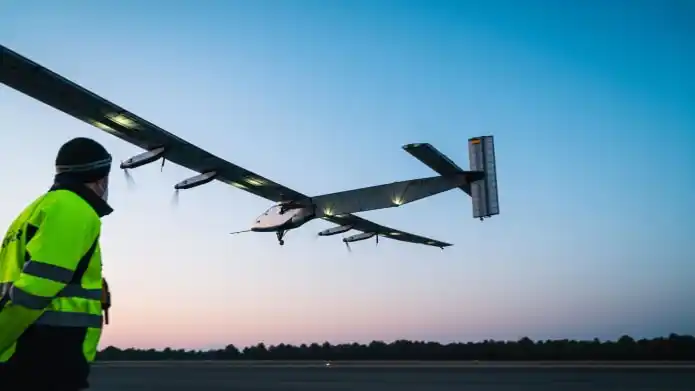The United States’ Military African Command (AFRICOM) is looking at supporting innovative solar-powered long-range, high-endurance Skydweller aircraft for intelligence mission to counter terror activities in the continent.
10-year, old solar-powered Solar Impulse 2, was acquired by Skydweller Aero and has been further developed and tested with U.S. government support in Spain “and capable of multi-month, continuous flight and has potential beyond gathering intelligence that supports U.S. and partner-led efforts to counter destabilizing, violent extremist activity in Africa.” says AFRICOM in Spain on 14 June.
Solar Impulse 2 was the brainchild of Swiss explorer Bertrand Piccard and Swiss engineer Bertrand Borschberg, built to showcase the potential of renewable energy.
Skydweller Aero, a US-Spanish startup bought the design in 2019, with the intention of turning the plane into the world’s first commercially viable “pseudo-satellite,” capable of doing the work of an orbiting satellite, but with more flexibility and less environmental impact.
“A pseudo-satellite is an aircraft that stays aloft, let’s say, indefinitely,” says Skydweller’s CEO, Robert Miller. “That means 30, 60, 90 days — maybe a year. And as such, it can do basically anything you would imagine a satellite can do.” That includes providing telecommunications and Earth imaging, as well as disaster response and monitoring natural resources.
Skydweller is modelled after the Solar Impulse 2 that flew around the world in 2015 and 2016 using solar power, but will be pilotless. Removing the pilot will give estra payload capability. Skydweller will be able to fly at 180 km/h, at an altitude 14 000 metres, with up to 350 kg of surveillance equipment like radar and cameras.
“With long duration dwell, there is the potential for persistent monitoring of natural disasters to help provide better disaster response,” said Brig. Gen. Rose Keravuori, U.S. Africa Command’s deputy director for intelligence.
“Our African partners would welcome persistent ISR (Intelligence, Surveillance and Reconnaissance) that can track piracy, receive indications of illicit trafficking, illegal oil bunkering, illegal poaching, or predator fishing.”
“Africom, along with the US Department of Defence’s Research and Engineering Branch and… Southcom (US Southern Command) are pleased to assist in the development of a carbon-neutral, long-dwell surveillance platform that can assist in generating greater security and development in partner countries,” Keravuori said. “We are interested in, and look forward to, exploring opportunities to coordinate with the military delegations present here today from France, Luxembourg and Spain.
“The bottom line is that a long duration and persistent ISR platform has the potential to provide a wide-range of capabilities to us…and our African partners at a lower cost while embracing a low carbon solution.”
